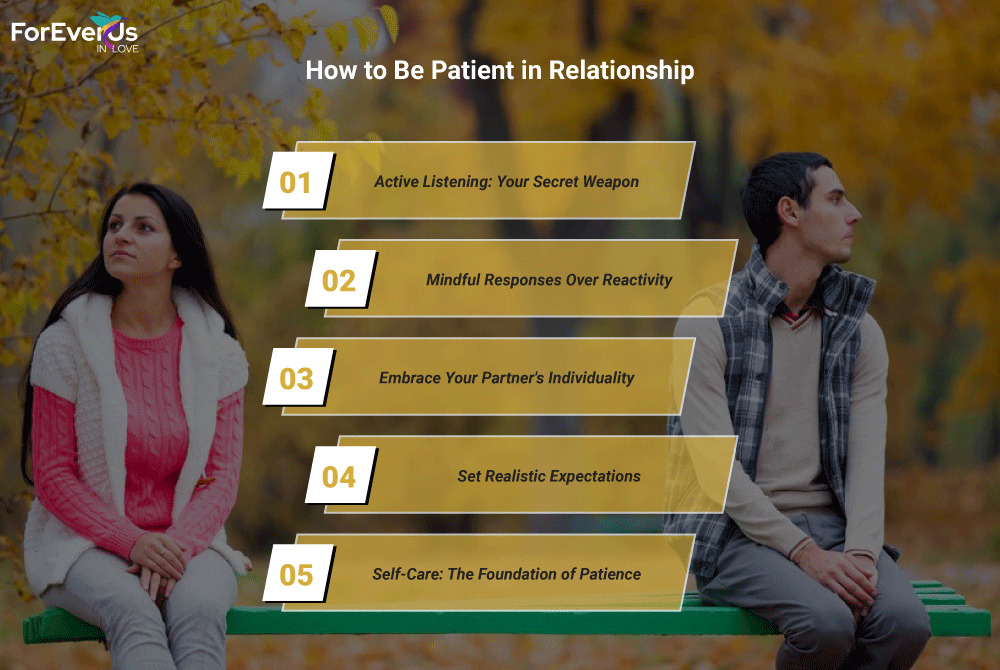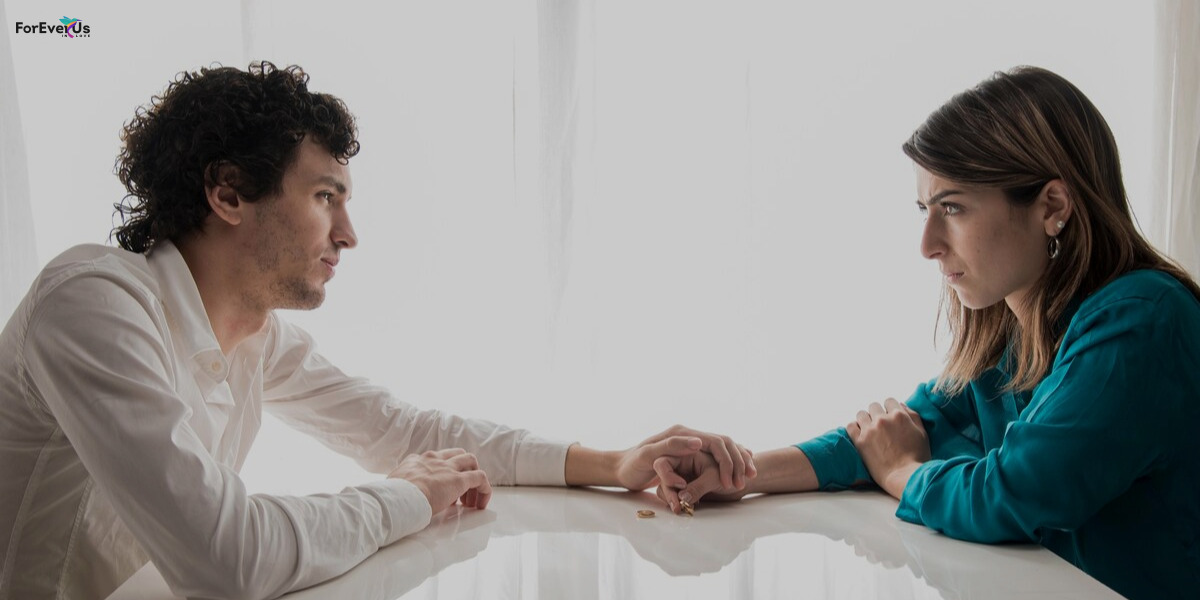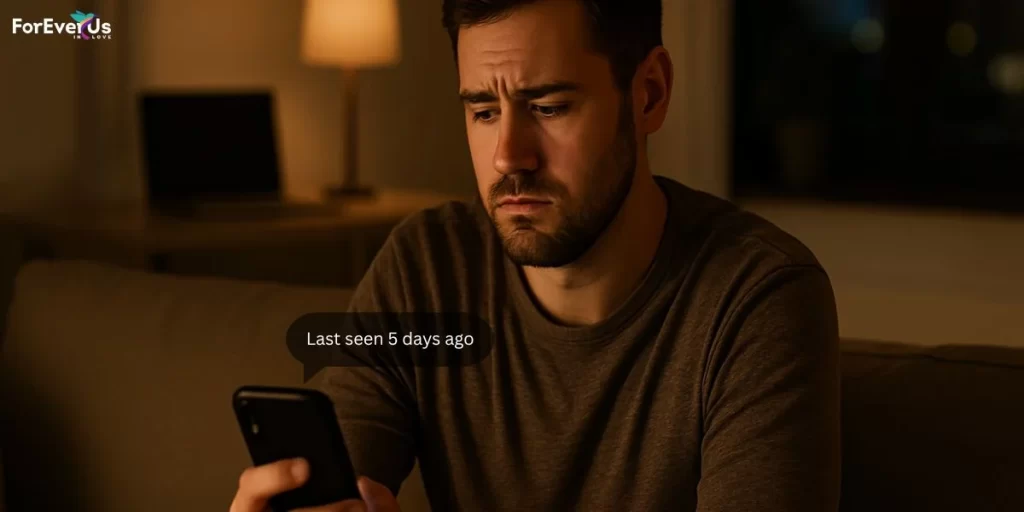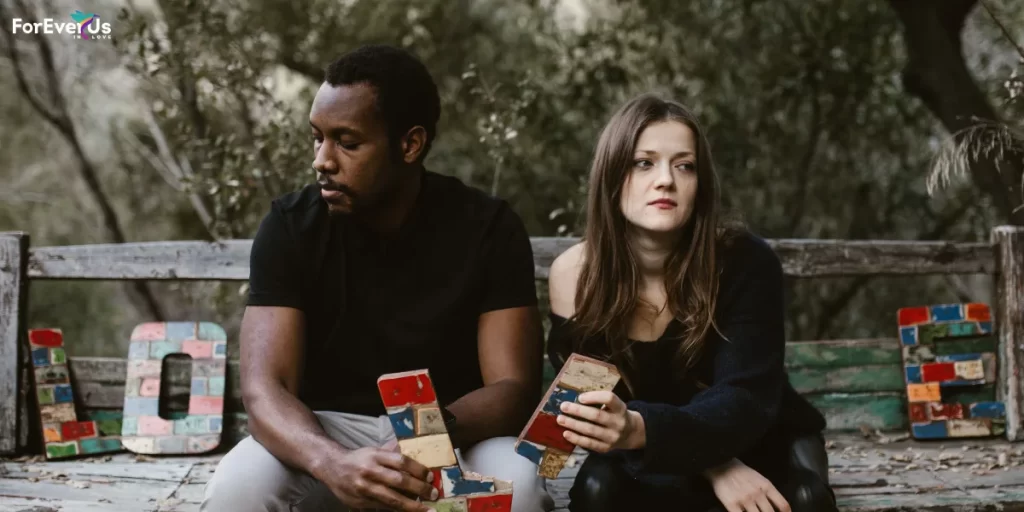Introduction
Let me tell you something—patience in a relationship is one of those superpowers we don’t discuss enough. Think about it for a second: two people with different personalities, attitudes, and behaviours. And guess what? That is perfectly normal. What tears a sore relationship apart isn’t how little you disagree with them—it’s how you handle that disagreement. And patience? That’s a game-changer.
Why does patience matter in a relationship so much? Simple: it stops you from reacting impulsively and lets you step back and understand where your partner is coming from. It allows you to work things out easily rather than letting frustration dictate your actions. Patience builds respectful relationships, improves communication, and helps you see the bigger picture rather than getting bogged down in small grudges.
So, in this Blog, I’ve been sharing real advice on how to be patient in relationship. These advices? You can start using it today. Whether you are struggling to communicate, under anxiety, or trying to balance things, this Blog has affected you.
Understanding Patience in Relationships
Let’s get real for a second: patience in a relationship isn’t about gritting your teeth and just “dealing with it.” It’s about choosing to stay calm, even when everything in you is telling you to react. Think of patience as emotional fitness. The stronger it is, the stronger your relationship becomes. Simple, right?
Now, let’s talk about the time that really tests our patience—when your partner is late for dinner or that thing that is always going to your skin, and you have two options: Be frustrated or use it as the opportunity to show grace. Which are you going to choose?
Here’s the thing: developing patience is a sign of emotional maturity. It says, “I’m in this. I value what we have. I can pause, listen, and work through challenges with care.” And trust me—that is strength.
Practical Tips to Cultivate Patience

1. Active Listening: Your Secret Weapon
Most of us think we’re good listeners. But are we really? More often than not, we’re just waiting for our turn to talk. True patience in a relationship starts with listening to understand—not just to respond.
Here’s how you do it:
- When your partner speaks, make them the centre of your attention. Put your phone down, mute the TV, and really listen.
- If something doesn’t make sense, ask. A simple “Can you tell me more about that?” shows that you genuinely care about what they’re saying.
Active listening isn’t just about hearing words—it’s about making your partner feel genuinely heard and valued. And, trust me, it diffuses frustration faster than anything.
2. Mindful Responses Over Reactivity
You know that moment in an argument when you feel like snapping back with something sharp? That’s your cue to pause. Take a deep breath. Count to five. Yes, really. It works.
Reacting impulsively only makes things worse. Instead, try this:
- Pause. Take a moment.
- Respond thoughtfully. Instead of “You always ignore what I say,” go with “I feel unheard when this happens.” Notice the difference? One fuels the fire, and the other invites understanding. Try it.
3. Embrace Your Partner's Individuality
Here’s a hard truth: your partner isn’t you. They’re not going to think, act, or process emotions the way you do—and that’s not a bad thing.
Rather than trying to change them, try this: embrace their uniqueness. For example, if they’re slower to make decisions, remind yourself that their thoughtfulness is a strength, not a flaw. Learning how to cultivate softness in your approach can deepen this appreciation—check out this guide on being softer in a relationship for practical insights.
Want a quick exercise? Write down three things you admire about your partner’s differences. Reflect on how those traits make your relationship richer and more enjoyable. You’ll be surprised at how this shifts your perspective.
4. Set Realistic Expectations
One of the biggest patience-killers? Expecting your partner to be perfect—always. Spoiler alert: that will never happen.
Instead, focus on setting expectations that align with reality. Be clear about what you need without putting pressure on them. For example, instead of saying, “You never give me enough time”, try saying, “I love that we can plan more date nights”. These changes create space for real interaction without sounding complaining.
5. Self-Care: The Foundation of Patience
Let’s face it: it’s hard to be patient when you are stressed or tired. That’s why self-care isn’t just important—it’s essential.
If you run on empty, then little annoyances can feel huge. So, take the time for yourself. Whether you enter the gym, take quiet time with a cup of tea, or simply let your mind know, your well-being will help you handle relationship challenges with class.
The Long-Term Benefits of Patience
Patience in a relationship isn’t just about avoiding arguments—it’s about building something strong, lasting, and meaningful. When you’re patient, you’re saying to your partner, “I see you. I value you. I’m here for a long time.”
Over time, this builds deeper trust, stronger emotional bonds, and a sense of security that makes your relationship unchangeable. Think of a couple that’s been together for years. They didn’t last because they never disagreed; they lasted because they learned how to handle those disagreements with patience and understanding. That’s the magic that makes love last.
When to Seek Outside Help
Sometimes, certain issues keep popping up, no matter how patient you are. And that’s okay. It’s normal to need a little extra support.
Counselling isn’t about “fixing” something broken. It’s about strengthening what’s already good. If you’re feeling stuck, seeing a professional can give you both new tools, fresh perspectives, and a way forward. Don’t wait until things get worse—get the help you need to keep your connection strong.
Conclusion
Here’s the bottom line: patience isn’t just a skill. It’s a gift you give to your relationship. It’s the difference between turning disagreements into opportunities and letting them erode the connection.
Start with the little things. Listen more. Pause before you react. Take care of yourself so you can show up as the best version of yourself. And remember, cultivating patience isn’t about being perfect—it’s about making progress.












